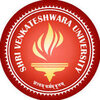5 Cygnus Medicare Jobs
Medical Superintendent
Cygnus Medicare
posted 2hr ago
Job Role Insights
Fixed timing
Key skills for the job
Job Description
Medical Superintendent (MS): ROLE AND RESPONSIBILITIES
FUNCTIONS AND ASSOCIATED TASKS
Administrative
The MS participates in administrative decision making and recommends and approves policies and procedures. The Medical Superintendent (read as MS):
1. Meets regularly with the management, the head of nursing, and other decision makers in the hospital and provides leadership needed to achieve medical care goals.
2. Participates in the development and periodic evaluation of policies and procedures and reviews the policies and procedures manual annually.
3. Participates in the activities of quality assurance; pharmacy, infection control, safety and medical care committees.
4. Stays informed about factors that affect long term care and incorporates social, medical, and fiscal changes into policies and procedures.
5. Participates in surveys and interacts with outside regulatory agencies.
6. Negotiates his or her contract and job description, prepares a quarterly report, and defines the MSs role in the hospital.
7. Keeps medical staff informed of changes in policies and procedures.
8. The MS understands multi-facility corporate policies and procedures and strategies for effecting and dealing with change.
9. The MS participates in disciplinary actions of the organization when appropriate.
- Hospital Management: Ensure smooth functioning of all hospital departments, including medical (DMOs, RMOs and Consultants), nursing, and support services.
- Policy Development: Develop and enforce hospital policies and procedures to comply with medical standards, regulations, and legal requirements, especially related to MLCs.
- Resource Management: Manage hospital resources efficiently, including budgeting with respect to staffing, and efficient and justifiable use of medical equipment and supplies.
Professional Services
The MS organizes and coordinates physician services and services provided by other professionals as
they relate to patient care. The MS:
1. Organizes, coordinates and monitors the activities of the medical staff and ensures that the quality and appropriateness of services meets local and international standards.
2. Develops and periodically reviews by-laws governing physician services.
3. Arranges for the availability of qualified consultative staff, maintains involvement in contract negotiations with these professionals, and represents them to the administration.
4. Assures coverage for medical emergencies and participates in decisions about the kind of emergency equipment and drug supplies that are to be kept available to meet patient’s needs.
5. Assists the management in establishing affiliation agreements with other health care institutions and helps promote rapport between the hospital and regulatory agencies, professional groups, ambulance and emergency groups, and individual health care services.
6. Facilitates the activities of the interdisciplinary team.
7. Arranges for the availability of qualified specialists and maintains involvement in contract negotiations with these professionals.
8. Assures that medical records systems meet the needs of patients and that laid down by local authorities.
9. Assures adequate documentation of health care.
10. Develops and periodically reviews policies that govern the practice of physician assistants and nurse practitioners in the facility
11. Develops policies and procedures related to activities of individuals participating in educational activities within the facility (physicians in residency programs, medical students, student nurses).
12. Assures that the nursing staff members attend physicians on rounds.
13. Makes summary decisions when admissions, orders, and/or transfers are considered inappropriate.
14. Conducts regular meetings with outside providers of hospital services in the hospital.
- Medical Staff Supervision: Supervise and support medical staff, including specialists and consultants, to ensure optimal patient care and outcomes.
- Clinical Governance: Implement clinical protocols and guidelines to standardize treatment practices on NABH standards and particularly in cases involving legal implications.
- Interdisciplinary Collaboration: Foster teamwork among healthcare professionals for integrated patient care delivery, especially in complex MLC scenarios.
Quality Assurance
The MS participates in the process to ensure the appropriateness and quality of medical care and
medically related care as per latest NABH standards. The MS:
1. Participates in the monitoring of care within the facility through a quality assurance program that encourages self-evaluation, anticipates and plans for change and meets regulations
2. Maintains knowledge of state and national standards for hospital care and ensures that the facility meets the minimal acceptable standards of care.
3. Understands basic research methods, utilizes sound research methods when conducting medical care evaluation studies, evaluates and reviews the feasibility and goals of research projects, and fosters a facility-wide attitude that is supportive of research and open to change.
4. Monitors physician performance and involves the attending physician in the setting of quality assurance standards.
5. Ensures that the quality assurance program addresses issues germane to the quality of patient care.
6. Utilizes the quality assurance program to effect changes in policies and procedures.
7. Establishes with the administration a means for disseminating information gained from the quality assurance program to residents, family members, staff members, attending physicians, and other appropriate personnel.
8. Serves as chairman of an institutional committee to review the feasibility and goals of research projects and disseminates research findings.
9. Participates in quality review of care within the facility in those specific areas mandated by law (e.g. drug level monitoring, laboratory indicator monitoring).
10. Reviews periodically admission transfers, and discharges of patients.
11. Participates in time management studies.
12. Solicits private and public funding for research activities.
13. Provides medical leadership for research and development activities in long term care.
- Monitor and maintain high standards of patient care and safety through quality improvement initiatives and audits on NABH standards.
Education & Training
The MS participates in the development and conduct of educational and Training programs. The MS:
1. Promotes his or her professional development through self-directed and continuing education.
2. Participates in the education and training activities of hospital staff members and identifies and suggests topics for in-service training through observation and evaluation of patient care.
3. Informs attending physicians about changes in policies and procedures and keeps them abreast of changes in state and federal regulations.
4. Assists in developing mechanisms for ensuring a regular flow of educational & training materials to internal and external audiences.
5. Assures time and access to in-service training for clinical staff.
6. Encourages institution-sponsored membership in professional organizations for staff.
7. Encourages special certification of staff members when appropriate.
8. Writes articles for in-house publications as and when it is developed.
9. Promotes education opportunities that exist in the hospital for students preparing for positions in the health care profession.
- Support ongoing education and training programs for medical staff and healthcare professionals, emphasizing legal aspects and updates related to MLCs.
- Research and Innovation: Encourage research initiatives and innovative practices in MLC management to enhance patient care and legal compliance.
Employee Health
The MS participates in the surveillance and promotion in the health safety, and welfare of employees. The MS:
1. Fosters a sense of self-worth and professionalism among employees.
2. Participates in a program to monitor, evaluate, and modify activities that might cause injury and illness.
3. Participates in a placement process that includes an assessment of physical activity and other capacities required by the job.
4. Participates in the activities of the safety committee.
5. Promotes employee wellness programs (e.g. weight reduction, stress reduction, cholesterol reduction, blood pressure reduction, nutrition, exercise).
6. Develops a program for an employee experiencing physical, social, or substance abuse that includes intervention and rehabilitation measures and that identifies community resources to assist employees with psychological and social problems.
7. Develops and monitors a policy for helping maintain the health and safety of visitors and volunteers.
8. Monitors patient behavior to prevent employee injury.
9. Encourages the use of assistive devices by employees.
10. Monitors community trends in infectious diseases.
11. Keeps staff members informed of potential hazards to their health and safety.
Rights of Individuals
The MS participates in establishing policies and procedures for assuring that the rights of individuals
(resident, staff members, and community members) are respected. The MS:
1. Establishes policies and procedures for physicians to follow when limiting treatment or withdrawing treatment.
2. Participates in the activities of the institutional biomedical ethics committee and identifies community resources that can assist in resolving ethical and legal issues.
3. Ensures that the ethical and legal rights of incompetent patients are respected.
4. Assures the right of patients to self-determination, privacy, and confidentiality.
5. Establishes a system for identifying and reporting abuse and establishes criteria for identifying potential abuse among both residents and staff members.
6. Understands and applies legal precedents that relate to patients’ rights.
7. Facilitates the patients’ choice of physician.
8. Assures that policies and procedures reflect the intent of the bill of rights.
9. Identifies community resources available to resolve ethical issues (e.g., ombudsman, health department, ministerial association).
10. Assures the right of patient self-determination through the use of living wills and durable power of attorney.
11. Participates, when necessary, in family meetings and similar activities to assist the facility and/or attending physician to assure respect for resident rights by facility staff and family members.
Medico-Legal, Social, Regulatory, Political, and Economic Factors
The MS acquires, maintains, and applies knowledge of social, regulatory, political, and economic factors that relate to patient care services. The MS:
1. Analyzes and evaluates the medical implications of the social, regulatory, political, and economic changes that affect patient care in the long term care facility.
2. Understands the tension that exists between the social responsibility to care for chronically ill and frail elderly and the financial constraints that effect the delivery of care will be better able to ensure the delivery of appropriate care within the constraints of economic and social realities.
3. Participates in cost containment decisions that affect medical care (e.g., use of formularies, appropriate use of lab, medication).
4. Participates in the facility budget process to assure the availability of resources for medical functions.
- MLC Handling: Oversee the management of Medico Legal Cases, ensuring all legal and procedural requirements are met, including documentation, reporting, and liaison with legal authorities.
- Risk Management: Identify and mitigate risks associated with MLCs, such as malpractice claims or legal liabilities, through proactive measures and compliance with medical laws.
- Medico-Legal Expertise: Provide guidance on complex medico-legal issues affecting patient care and hospital policies, collaborating with legal advisors as needed.
- Documentation: Ensure accurate and timely documentation of medical records and reports related to MLCs, maintaining confidentiality and adherence to legal standards.
Person-Directed Care
The MS will support and promote person-directed care. The MS:
1. Provides oversight to clinical and administrative staff to help maintain and continuously improve the quality of care (e.g., help develop metrics and periodically analyze processes and results to monitor the success of person-directed approaches).
2. Helps develop, implement, and review policies and procedures that ensure residents are offered choices that promote comfort and dignity (e.g., choices regarding awakening, sleep, and medication administration times, discussions of risk/benefits regarding medicalized diets, medications and treatments).
3. Collaborates with the interdisciplinary team (IDT), the family, and allied services within and outside of the organization to encourage planning, implementing, and evaluating clinical services to maximize resident choice, quality of life, and quality of care.
4. Educates physicians and other medical professionals on maintaining clinical standards in the context of individualized care.
5. Collaborates with hospital leadership to create a person-directed care environment while maintaining standards of care.
6. Patient Relations: Ensures patient satisfaction and address complaints or concerns, particularly in Trauma and high risk cases, with sensitivity and adherence to legal protocols.
7. Ethical Practices: Upholds ethical standards in patient care and treatment decisions, ensuring informed consent and compliance with legal requirements.
Crisis Management and Emergency Response:
- Emergency Preparedness: Coordinate responses to medical emergencies and critical incidents, ensuring protocols are followed, especially in MLC situations requiring urgent attention.
- Public Relations: Represent the hospital in public forums and media regarding MLCs, maintaining transparency and confidentiality as per legal requirements.
Employment Type: Full Time, Permanent
Read full job descriptionPrepare for Medical Superintendent roles with real interview advice






























